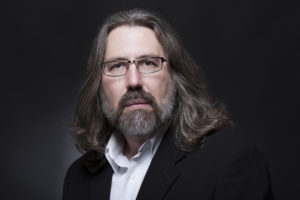 Zombie Politics. Spiritual Vandalism. Denying Medical Care to the Disabled.
Zombie Politics. Spiritual Vandalism. Denying Medical Care to the Disabled.
I was born and raised in Tennessee. Both of their senators and three of their five representatives have a 100% rating from the National Right to Life Committee.
Presently, the state of Tennessee—along with Alabama and Utah, among others—have what are being called “emergency contingency plans” for addressing the pandemic, should their hospitals become overrun. These plans would, according to the reports, deny ventilators and other crucial medical care to people with disabilities—notably, individuals with intellectual and cognitive disabilities.[1]
This is not the horrifying but purely physical triage that health care workers—doctors, nurses, medics—must perform in emergency situations, assessing in a matter of minutes (or less) the likelihood that someone will survive their wounds, if treated aggressively. Based on that judgment call, the health care worker chooses some to receive full treatment and others who will be made comfortable as they die.
That physical triage is horrifying. I lived and worked in Jerusalem during my dissertation, and my wife and I were friends with a physician there who had to make such calls when bombs went off. It was as absolutely wrenching as it was absolutely necessary. But at no time was it ever suggested that someone with a cognitive disability—think Down syndrome or Autism—would not be treated because of that condition. The Jewish people had too much history to consider such monstrosities.
It cannot be said often enough or loudly enough: some things you cannot do without marring your humanity to its core. Deciding someone is not worth potentially life saving medical attention simply because of where they fall on some imagined cognitive hierarchy is one such act of spiritual vandalism. It is worse. It is a spiritual madness, and no one can be considered pro-life who looks away from that fact.
In an intimately related set of recent news stories, the Texas lieutenant governor suggested that people should be willing to risk dying in the pandemic if it kept the free markets functioning better.
Flashback: “I fear I am not in my perfect mind,” Shakespeare’s King Lear confesses. And just a few lines later, he draws together the last bits of his clarity, because he has managed to see the face of his daughter, who loved him rightly and whom he has remembered now, at the end, to love. At least, to try and love. But it is too late.
For secularists who have still not understood, this is what Pope John Paul II meant by his phrase “the culture of death.” It is the invocation of a simple idea: that if we fail to prioritize the human being as intrinsically and inescapably valuable, and if we fail to recognize that our political and economic systems are not an end in themselves but a servant of our humanity, we are trafficking in a madness that corrodes both the human soul and the social order. We are living for death.
For Christians, whether Catholic, Orthodox, or Protestant, there is probably no better time than now to assess what you love and what you have exiled. Saint Augustine, who lived at the end of the Roman Empire, saw clearly: the Christian can never be a full citizen in any earthly political system, for the Christian is called to live by rules too high and too holy to be contained within mere politics.
The madness that is in the land at the present time begs us to import values from the political struggles into our hearts so that those values can define our faith. The madness doesn’t care whether those values came from the Left or from the Right. Both are equally fatal to true faith when they are made to rule over it.
In Shakespeare’s play, King Lear was unable to recognize who actually loved him. He was fooled by the flattery and fawning of those who served their own interests—some in one party, some in the other. In the end, Lear’s inability to discern the higher love cost him everything that makes life meaningful. For decades after it was written, in fact for almost a century, King Lear was considered too dark and tragic to be performed.
The only thing darker than the play would be for Faithful of the Church to make the same mistake in real life.
References
[1] USA Today, “People with disabilities are afraid they will be denied health care because of coronavirus.” March 26, 2020. Accessed online.
